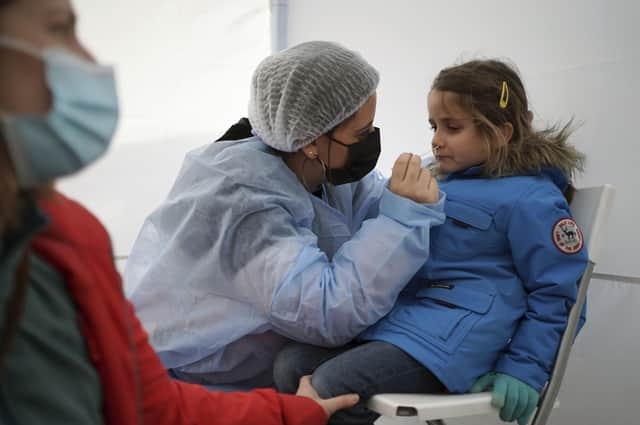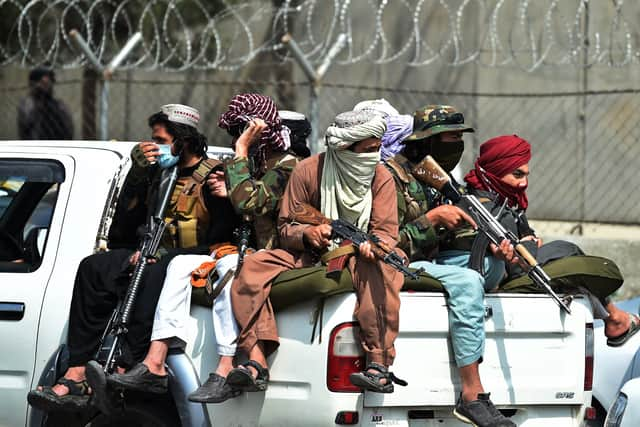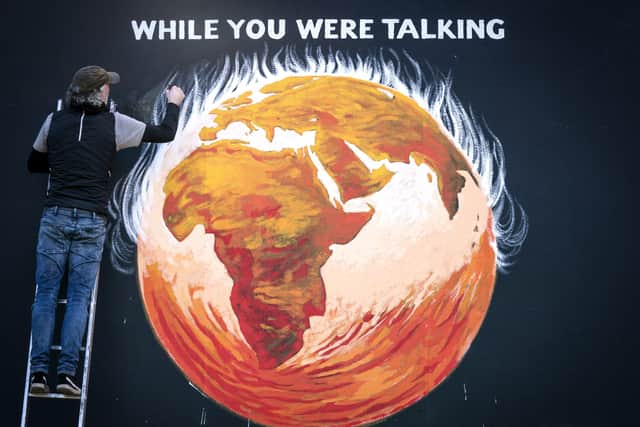Christian Aid’s three challenges to Ministers over Covid, climate and conflicts – Patrick Watt


One year ago, the UK was braced for a third lockdown, and the toll on daily life that it entailed. In many ways, the situation today has been transformed by the Covid vaccine.
Yet, in too many ways, the start of 2022 feels all too similar to the start of 2021. The three Cs of Covid, conflict, and climate continue to shape the prospects of a billion people living in poverty, and our wider world.
Advertisement
Hide AdAdvertisement
Hide AdThe pandemic, which beyond its direct toll on human life is having the gravest economic fallout in the poorest countries, still defies predictions and threatens to scupper an already fragile recovery.


The climate crisis, despite tentative steps taken at Cop26, continues to devastate the present for millions of vulnerable people, and cast a shadow over our common future.
Meanwhile, violent conflict from Afghanistan to Ethiopia, and the Sahel to Myanmar, is intensifying hunger and poverty and entrenching bitter divisions. In Afghanistan alone, it is estimated more than eight million people are on the brink of famine.
In the last year, the British public has demonstrated its own concern and commitment. They have campaigned for vaccine equity at the G7 in Cornwall, for climate justice at the Glasgow summit, and in recent weeks raised £26m for the Disasters Emergency Committee appeal for Afghanistan.
Advertisement
Hide AdAdvertisement
Hide AdThese actions should give cause for hope as we begin a new year. They also send a signal to those taking decisions in Westminster and Whitehall that there is a public appetite for the UK government to play an active role in tackling these big collective problems, levelling up abroad as well as at home.


In that spirit, like a first footer at 10 Downing Street, this is Christian Aid’s map for the year ahead, against which to judge UK action on global poverty over the coming 12 months.
On the climate emergency, richer countries must deliver on the pledge in Glasgow to double the funding needed to adapt to global heating. Beyond adaptation, they must commit the resources the poorest countries need to cope with the permanent climate-related loss and damage, much of it uninsurable, caused by carbon emissions in the wealthiest economies.
Where the pandemic is concerned, honesty is due from the richest countries after a year of queue-jumping and vaccine hoarding.
Advertisement
Hide AdAdvertisement
Hide AdThe failure to roll out vaccines globally is costing lives and creating the conditions in which new variants can emerge. Indeed, the UK has so far delivered less than two-thirds of its promised 100 million vaccine doses for the poorest countries.
The UK must deliver on its existing pledges, but also go further to boost production and distribution in under-vaccinated countries by supporting a waiving of intellectual property rules so technology and know-how can be shared. Coupled with this, we need a comprehensive debt cancellation package that enables investment in health systems.
Finally, with hunger and humanitarian need on the rise, the Government should reverse the aid cuts of the last 18 months and remove the barriers that are hindering the delivery of life-saving aid in Afghanistan.
The decision to freeze Afghan assets and international funds, and the threat posed by sanctions directed towards the Taliban have caused havoc across the banking sector and slowed aid flows.
Advertisement
Hide AdAdvertisement
Hide AdWith the UN Security Council approving exceptions to the sanction’s regime for Afghanistan in the week before Christmas, the UK needs to translate this change into its own regulations.
At a time when some families in Afghanistan are reportedly so desperate, they have been forced to marry off daughters to buy food, time is of the essence.
Whatever other challenges confront the UK in the coming years, these three issues – Covid, climate, and conflict – are too important to neglect.
With genuine political commitment over the coming 12 months, we can end 2022 on a very different and more positive note from the one on which it is starting.
Patrick Watt is the interim CEO of Christian Aid.
Advertisement
Hide AdAdvertisement
Hide AdSupport The Yorkshire Post and become a subscriber today. Your subscription will help us to continue to bring quality news to the people of Yorkshire. In return, you’ll see fewer ads on site, get free access to our app, receive exclusive members-only offers and access to all premium content and columns. Click here to subscribe.
Comment Guidelines
National World encourages reader discussion on our stories. User feedback, insights and back-and-forth exchanges add a rich layer of context to reporting. Please review our Community Guidelines before commenting.